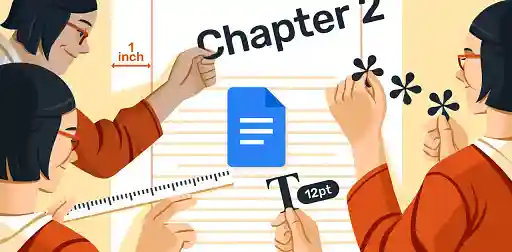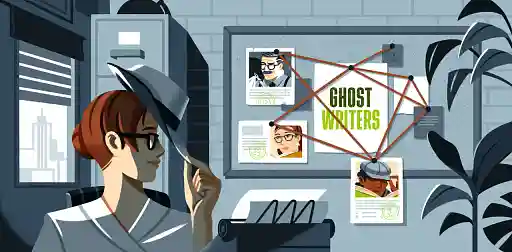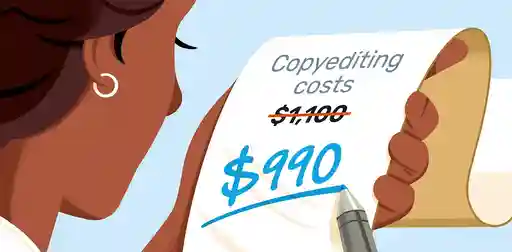Blog • Understanding Publishing
Last updated on Feb 07, 2023
How to Get a Book Deal in 2024: 6 Steps to Success
Want to know how to get a book deal? From polishing your writing and crafting a query letter to securing a literary agent and that ever-desirable contract, the process of selling your book to a publisher is fairly straightforward: you just need to be meticulous, patient, and a little bit lucky.
Based on our experience working with hundreds of first-time authors, here are some insights to help you succeed in getting a book deal.
Note: this post is focused on fiction writers (or genres typically requiring a literary agent). If you’re hoping to publish a nonfiction book, we recommend you head to our guide on how to write a book proposal — this will take you through the first stages of the process.
1. Start by validating the market for your book idea
Agents and publishers are risk-averse. That means you have to show them that your book will meet an existing market’s needs. They aren’t looking for clones of bestsellers, but they’re interested in books that do something similar in a new way.
That could be a domestic thriller with an unexpected new voice. Or taking certain genre tropes and putting a different twist on them — like a cyberpunk thriller with an unexpectedly technophobic protagonist or an epic fantasy with shades of film noir. Regardless of specifics, you need to make a compelling case that: a) there is an existing readership for your book, and b) there’s something unique about it.
Polish your writing before going anywhere near publishers
 Yes, agents and publishers are looking for interesting new voices, but they aren't in the business of snapping up manuscripts riddled with plot holes, character inconsistencies, and egregious typos. You can pitch your book like an expert and hype its merits, but sloppy writing is a one-way ticket to losing a literary agent’s interest (find out more here).
Yes, agents and publishers are looking for interesting new voices, but they aren't in the business of snapping up manuscripts riddled with plot holes, character inconsistencies, and egregious typos. You can pitch your book like an expert and hype its merits, but sloppy writing is a one-way ticket to losing a literary agent’s interest (find out more here).
Self-editing is a must
Not sure what editing your own book entails? Start from big-picture elements, like plot and character development, and approach your manuscript asking why things unfold the way they do. Move on to editing each scene, ensuring they follow a reasonable arc and are integral to the overall plot.
Once you’ve finalized the story and received all external feedback (see below), you’ll need to do a copyedit, correcting any grammatical or stylistic issues on the sentence level. And to finish it all off, you should do one last proofread (or to be safe, get someone to do it for you).
Get feedback from early readers
To properly revise your book, you need to have a sense of the reader’s experience. Unlike you, beta readers will be encountering your book for the first time, so they’ll be able to spot major issues straightaway. Share your work with friends and family who read in your genre and ask what they think of your plot and characters!
If you don’t have a personal network to turn to, you can look into hiring professional beta readers, or join a (real life or online) critique circle. A critique circle can be particularly helpful because it’s made up of writers, so the feedback you’ll be getting will come from readers who are also writers. (And it’s safe to say you can expect a healthy dose of inspirational envy when it comes to critiquing other people’s fantastic work.)
Format your manuscript to industry standards
There's no need to get inventive with how you present your manuscript. Agents and publishers will expect to see manuscripts presented in a standard format. But don't worry: download our free manuscript template, and you'll be ready to go.
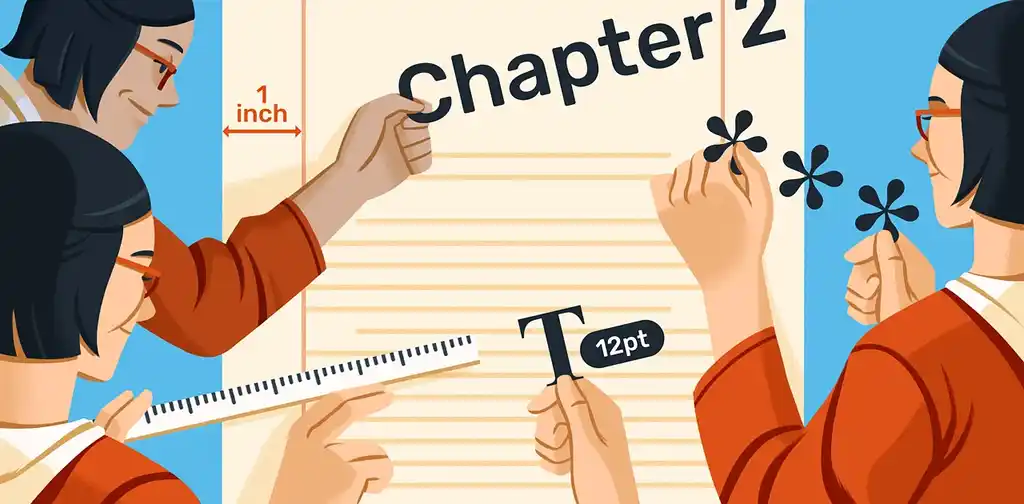
FREE RESOURCE
Manuscript Format Template
Get your manuscript ready for submission to agents and publishers.
Consider hiring a professional
Granted, critique circles or beta readers might not be right for you if you don’t have the time to engage with them, or if you’d simply rather put your trust in a seasoned professional.
If this is the case, you can hire an expert instead. This should be someone with experience in book editing (English major siblings won’t do, sorry), who will examine your work as someone familiar with genre conventions and the literary market’s expectations. Sign up to Reedsy to find the perfect editor for you straight away!

Give your book the help it deserves
The best editors are right here on Reedsy. Sign up for free and meet them.
Learn how Reedsy can help you craft a beautiful book.
Recommended resources:
- How to Edit a Book 101 (blog post)
- What are Beta Readers — and Where to Find Them (blog post)
- The 50 Best Online Critique Circles (blog post)
- 9 Types of Editing: Which One Do You Need Right Now? (blog post)
- How to Self-Edit Like a Pro (free learning course)
2. Write a query letter to pitch your book topic
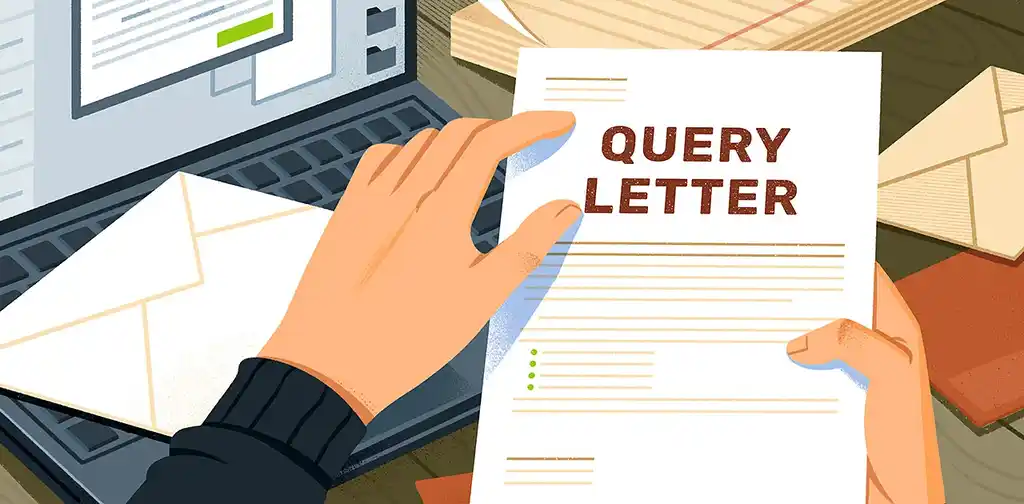
Now that your book is the best it can be, it’s time to work on the way you pitch it to agents. Named an “elevator pitch” because it’s short enough you could pitch it in a 30-second elevator ride, this is a highly condensed, attention-grabbing description of your book that should hook your readers in. It’s how you’ll describe it to just about anyone who will listen, so you need to be able to get people excited about it! To that end, make sure you do these three things.
Include all crucial information
Set up your story in the quickest and most compelling way possible. Mention:
- Your protagonist’s name and their existing status quo (“Bright-eyed accountant Sarah Hicks…”)
- What changes their world (“...accidentally uncovers the truth behind her employer’s sudden success…”)
- What’s at stake? (“...that threatens to bring down Chicago’s mayor and destroy Sarah’s promising career.”)
Think about what incites the action and the driving forces behind your narrative. If your book consists of multiple narrative strands, you can unite them by communicating your work’s overall message, e.g. “this novel asks if humans are really that different to robots”.
Also highlight the elements of your book that stand out the most — is it told in reverse chronological order? Told in many languages? Merging two genres? Again, agents and publishers want unique, so the more you can stand out, the better!
Convey the mood in the pitch
Your pitch should also reflect the atmosphere of your writing — a work of literary fiction shouldn’t be pitched in a way that suggests a page-turning thriller. Opt for as much drama as your book warrants, while emphasizing its strongest points, and be careful not to confuse your reader. For example, if your book is a historical fiction romance but you pitch it in short, snappy sentences and suspenseful language (e.g. “gripping”), using phrases like “unlocking the answer”, you could accidentally mislead an agent — who won’t be happy when they receive your manuscript.
Trim it down
Remember, this is an “elevator pitch” because it’s short, so keep words to a minimum. The fewer the words, the more effective they are. Compare these two openings:
- “This debut novel follows a character named Jane, who is a high school dropout and is [...]”;
- “High school dropout Jane is [...]”
Condense unnecessary descriptive phrases and avoid overstating the obvious. Watch out for long-winded phrases or excess adjectives/adverbs (e.g. “truly”, “really”).
Draft a query letter for each agent
Once your elevator pitch is prefected, you can use it as part of your all-important query letter for agents. You must personalize your letter for each agent, so don’t just skip ahead — sign up for our free learning course below to sharpen your query letter skills!

FREE COURSE
How to Write a Query Letter
Learn to grab agents’ attention with 10 five-minute lessons.
And if you’re still having trouble, remember that professional editors can help refine your letter.
Recommended resources:
- How to Write a Query Letter in 7 Steps (blog post)
- How to Write a Book Blurb Τhat Sells (blog post)
- How to Write an Incredible Synopsis in 4 Simple Steps (blog post)
- Personalizing Your Query Letters (free webinar)
3. Query for a literary agent
With a polished book and sharp query letter in hand, you can begin serious efforts to find a literary agent. You’ll first need to compile a list of agents who’d be perfect for your book. Our literary agents directory is an excellent place to start — you can search 600+ agents by genre, location, and keyword. All the information you need is right there!
Still, you may be wondering: what exactly makes an agent a good fit? Besides working in your territory of interest, they should have experience in your genre and possibly your subgenre (though most agents will not want to represent multiple books that are extremely similar). They should also be an active agent, currently accepting submissions, with positive feedback from the authors they represent. You can check for all this on QueryTracker — our directory links to each agent's QueryTracker profile to make it easier.
Once you have your literary agent shortlist, query just 6-8 agents per round, starting with the closest matches and widening the search if necessary. There are three reasons why you should only query 6-8 agents each time:
- To ensure you personalize each letter, which takes time and research;
- To set a realistic target you can meet without having to pause all other activities;
- Most importantly, to give your preferred agents a head start when it comes to considering your work.
High-profile agents receive around 1,000 queries every month, so make sure you stand out by really perfecting that elevator pitch! To track your progress, we recommend using a simple spreadsheet. In fact, we've made a template you can download for free below.
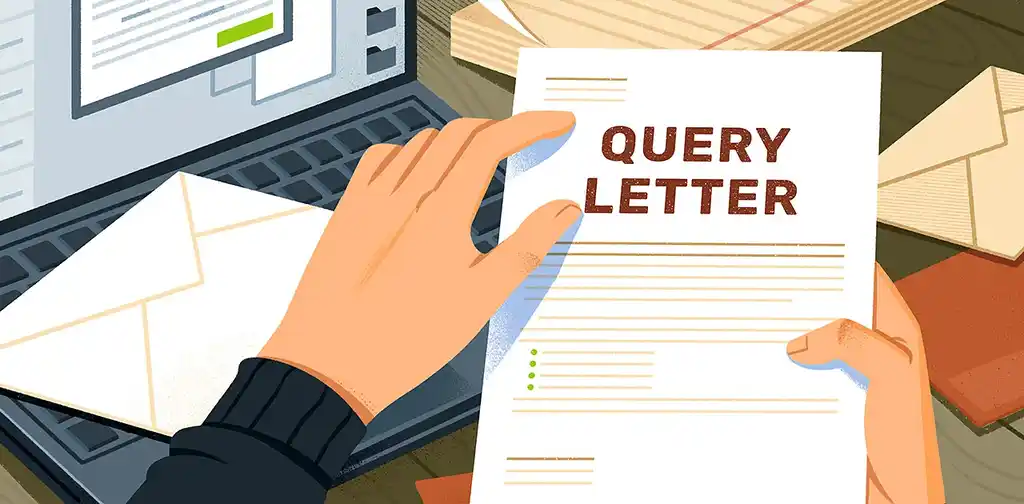
FREE RESOURCE
Query Submissions Tracker
Stay organized on your journey to find the right agent or publisher.
Recommended resources:
- How to Find a Literary Agent For Your Book (blog post)
- How to Write a Book Proposal (blog post)
- How to Submit a Book Proposal (blog post)
4. Track the success rate of your submission process

“Night gathers, and now my watch begins.” Well, the wait to hear back from agents isn’t quite as arduous as a lifetime spent standing guard atop an ice wall — but it might feel like it at first. Be patient, but also be proactive.
Do not pester agents with daily emails demanding a reply. Send a polite reminder if you haven’t heard from them in 4-6 weeks (or within the timeframe their website specifies). In many cases, your query may have been buried at the bottom of their busy inbox.
If you receive rejections with constructive feedback, recognize that this is a win compared to a standard rejection letter! Feedback often means that an agent was interested in your work but some issues were holding it back. Take the time to seriously consider their feedback and make any changes that seem useful before re-submitting to other agents!
If you don’t get any requests for your manuscript, your query letter might not be working. However, if you get loads of manuscript requests but they lead nowhere, you’ll know your book itself needs to be improved. If you haven’t previously consulted a professional editor, now might be the time!
5. Submit your manuscript to publishing houses
Once you’ve found an agent you’re happy with, you can expect some further editing to take place under their guidance. This involves textual editing, as well as formatting changes to meet the guidelines of each publisher.
Your agent will then reach out to 8-12 publishers to pitch and submit your manuscript. They’ll likely know many acquiring editors personally, so they’ll pass it on to the most relevant people.
Curious whether you can submit without an agent? While some publishers accept unagented submissions, this is not typically the case with the largest book publishers, in particular the highly selective ‘Big 5’. For most people, it is much harder to get a book deal without an agent helping you get your foot in the door — but if you have an established audience and working knowledge of the publishing industry, you could still give it a shot.
Note: Poetry, nonfiction, cookbooks, and academic/educational books are the genres where you’re most likely to succeed without an agent.
Recommended resources:
- Publishing Companies (and Other Publishing Scams) to Avoid (blog post)
- 2024 Best Book Publishers (directory)
- Manuscript Format: A Guide for Novels (blog post)
6. Choose the best book deal for you

In an ideal world, you’ll receive multiple offers. When several publishers are interested in your book, it’ll be sold at “auction”. Disappointingly, this does not play out in an exciting courtroom-like setting, but via emails or phone calls to your agent. But there is one upside: when publishers know they’re competing with each other, you can expect larger advances, as they’re more likely to make higher bids to win your affection.
Money is not everything
However, when deciding on a publisher, earnings is not the only relevant factor. Remember the highest offer is not always the best one: a generous advance that your book fails to “earn out” could damage your chances later on. What’s more, if your book sells well, your advance should make no difference in the long run, as you’ll earn back the difference in royalties.
Money might indicate the size and budget of each publishing house, rather than their level of enthusiasm. It may well be that a smaller, passionate publisher that offers a smaller advance will work much harder on promoting your book.
Your potential publisher’s marketing plan is a crucial factor here. For a debut author in particular, marketing support will be incredibly important, so pay attention to the ideas and suggestions of each publisher! Finally, check with your gut, and know that your choice must be someone who shows you that they perfectly understand your vision.
Don’t lose hope
When you’re figuring out how to get a book deal, you’re up against pretty slim odds for success. Editors and agents are sometimes forced to reject perfectly good books due to limited budgets or because they’ve already taken on many books for a certain time period.
But this means that rejections do not always indicate the quality of your work, so cut yourself some slack! And if you only get one good offer, remember that you’re still in the lucky minority. Not all great books start their lives with a bidding war: Douglas Stuart’s Shuggie Bain, winner of the 2020 Booker Prize, only received a single offer from publishers.
Even if you can’t get a book deal after following all these steps, that’s not the end of the road. Many successful authors say their first novels were never published, but they still got a book deal for their second ones. Never let a rejection define you — you’re still as good a writer as you were before the rejection! Your writing’s intrinsic value has not changed, and you’ll only get better with each new book you write.
If all else fails, consider a different publishing route
As we’ve just said, the practical constraints and intense gatekeeping of traditional publishing inevitably mean that some extraordinary writing falls through the cracks. If this is the case with your book, perhaps it’s time to consider self-publishing.
Compared to the traditional route, self-publishing is more egalitarian: you don’t need to jump through hoops to get the approval of industry gatekeepers. You also retain higher book sale royalties and have significantly greater creative control. It involves some hard work, but if that’s what it takes to get your book published, it may be worth it! Whatever you decide to do, we wish you the very best luck.
Recommended resources:
- Is It Better to Self-Publish or Get a Publisher? An Author's Guide (blog post)
- How to Get a Book Published: Your Guide to Success (blog post)
- How to Self-Publish a Book: 7 Steps to Bestselling Success (blog post)
- How Much Does It Cost to Publish a Book? (blog post)

